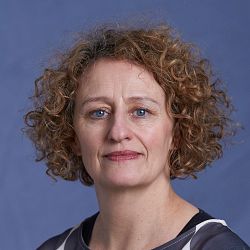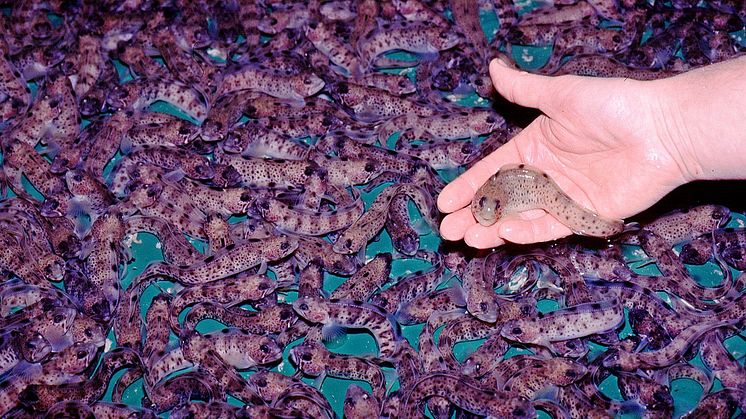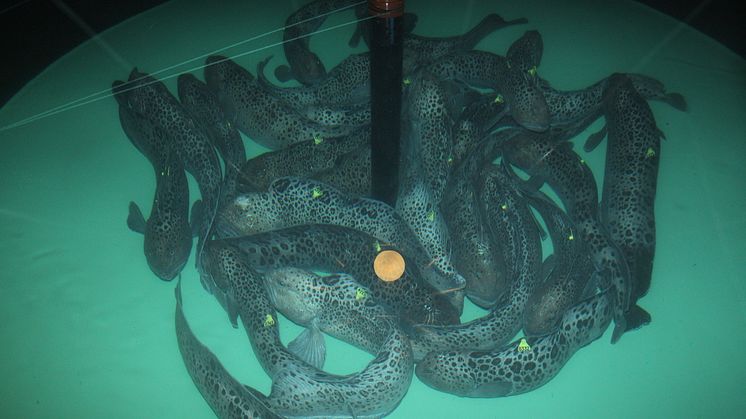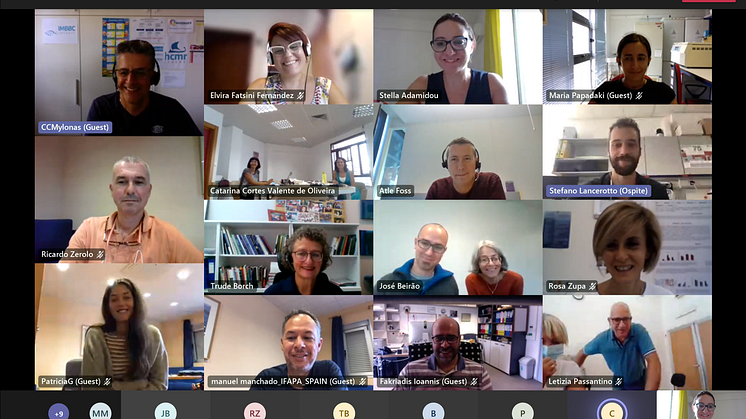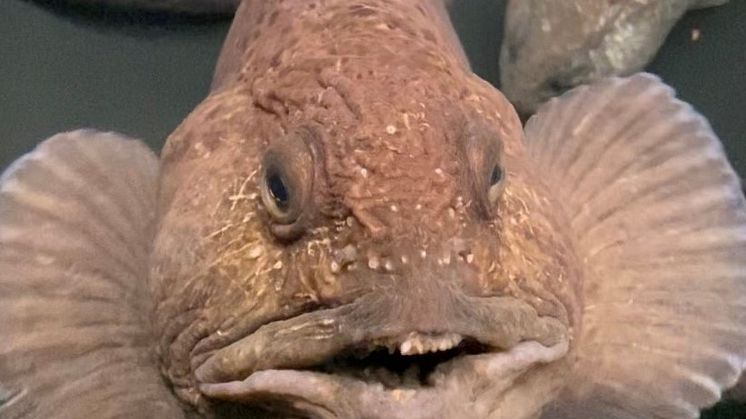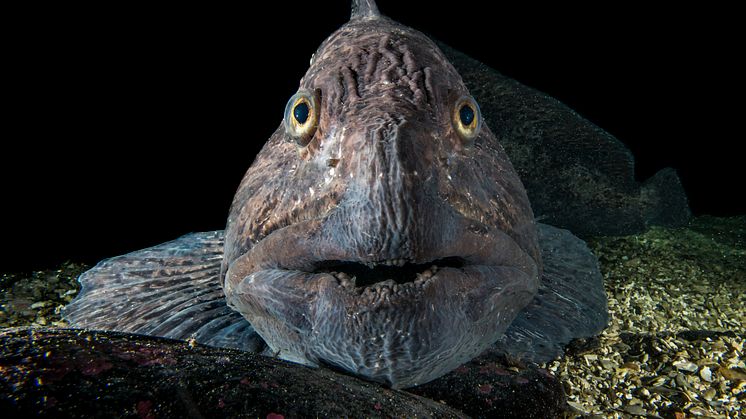
Nyhet -
The spotted wolffish – intimidating but delicious
By Trude Borch, Marianne Frantzen and Lars Olav Sparboe // Akvaplan-niva
Just north of Tromsø in Norway, at a research station called FISK, there is a tank holding 70 of these scary-looking fish. They are broodfish collected from the wild by fishermen who know how to capture fish without harming them. The wolffish are therefore healthy and in good shape, and seem to be thriving.
The wolffish gets its name from the canine-like teeth in the front of both jaws. It can chew through all kinds of crustaceans and molluscs, and its preferred diet of such shellfish makes the wolffish a delicacy in its own right. This explains why it is a popular catch among both commercial and recreational fishermen. In the 1990s the spotted wolffish (Anarhichas minor) also emerged as a promising candidate for aquaculture attracting considerable interest in Norway, Iceland, Canada, and Chile. In 1994 the very first artificially fertilised spotted wolffish eggs were hatched in the laboratories of the Norwegian College of Fishery Science in Tromsø.
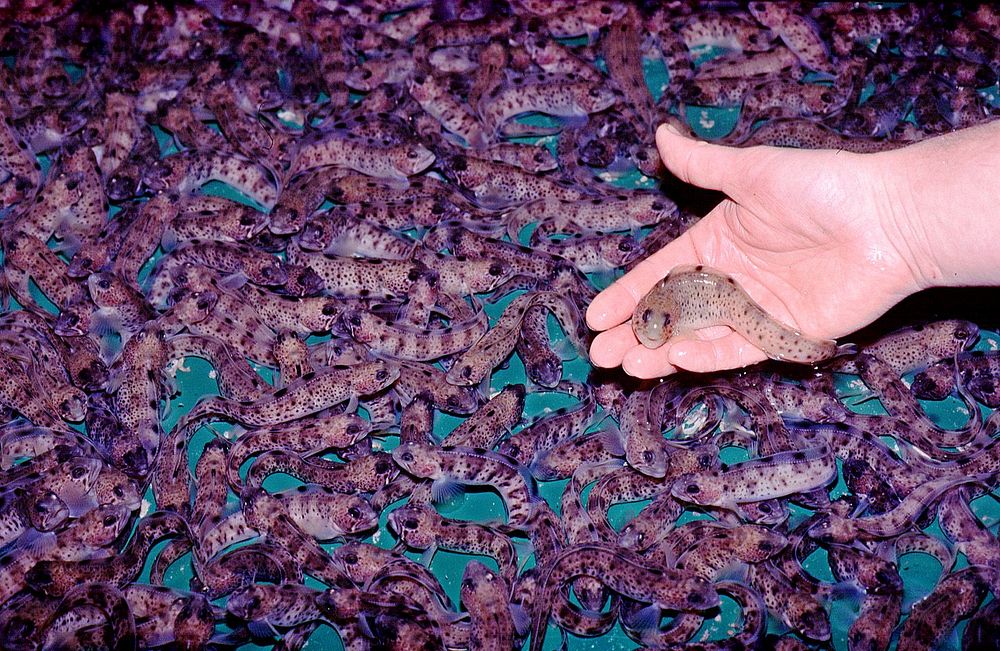
Young spotted wolffish are rather charming. Photo: Lars Olav Sparboe / Akvaplan-niva
Promising
The prospects for spotted wolffish aquaculture were very promising in this early phase. In general, the species can be described as an ideal aquaculture candidate with a range of attractive characteristics, including a high fillet yield and high market prices, non-aggressive behaviour, few problems with disease, and rapid growth in captivity at very high densities. Despite its fierce appearance, the wolffish is a friendly and social species. Fish farmers have discovered that wolffish grow faster when they lie clustered together. This species’ social nature is an important asset for aquaculture. Farming of bottom-living fish is generally very space-demanding, but the behaviour of spotted wolffish makes it feasible to house them on shelves in a tank during the on-growing phase of aquaculture, when the fish grow to saleable size.
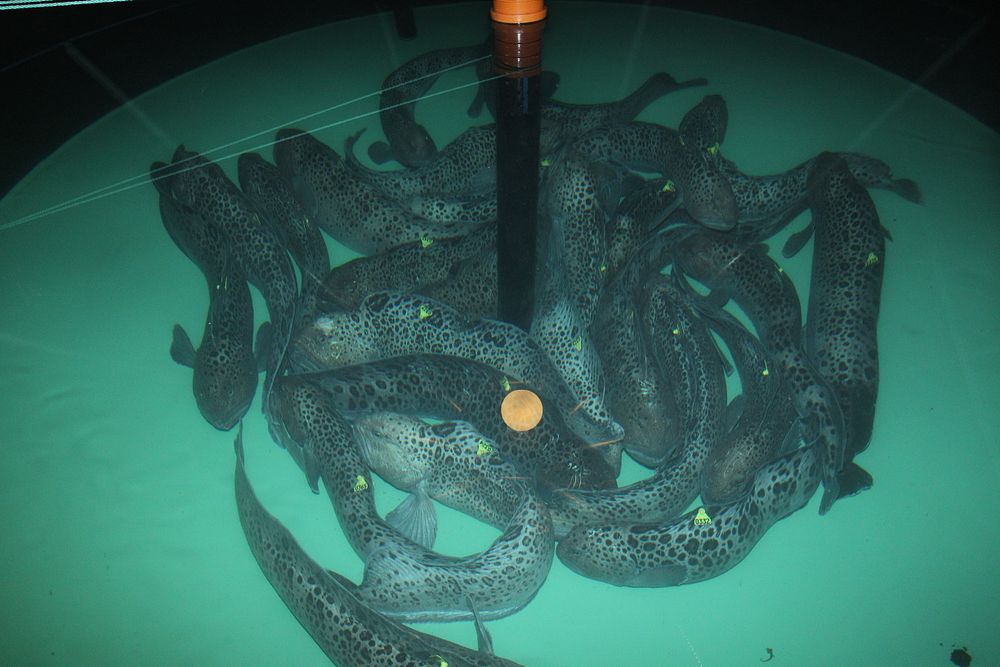
Spotted wolffish are social creatures, whose growth rate increases when they are gathered together in clusters. Photo: Akvaplan-niva
Challenges
However, some challenges remain to be solved before full-scale aquaculture of this species is feasible. This is the background for Akvaplan-niva’s research activities on spotted wolffish at FISK. Together with new wolffish aquaculture start-ups we will establish a programme that will form the basis for large-scale commercial production of wolffish (up to 4000 tonnes). We will retain most of the bloodstock at FISK, and plan to build a pre-commercial hatchery and fry production facility. In parallel, we may contribute to a breeding programme that is being considered by actors in the aquaculture industry.
At FISK we will also be able to undertake small scale scientific experiments to strengthen the wolffish farming value chain, for example developing a more optimal feed recipe for on growing of wolffish. Testing a new large-scale wolffish tank unit with low water and energy consumption is also on the list of activities that might be plotted into the future FISK calendar.
Stay tuned for news about this emerging species in aquaculture. The spotted wolffish: unlovely, but exciting.
Facts about the FISK upgrade
Sometime in 2023, Fram Centre scientists will have an opportunity to use new facilities when Akvaplan-niva opens a modernised version of its R&D station – FISK – just outside Tromsø. The station is an approved animal research facility and holds an aquaculture licence for over 130 different invertebrate and fish species, including the spotted wolffish.
Our new research station includes 480 m2wet lab area with flexible solutions that will make it possible for scientists to up- and downscale experimental setups to suit a broad range of needs. One separate hall of approximately 80 m2 is adapted for ecotoxicological research. The rest of the station can be operated as a single unit or separated into five halls with individual lock-chambers. Each hall is connected to a modern central processing system with individual monitoring and detailed water quality logging of all tanks. FISK has a marine flowthrough aquaculture production system providing small, medium, and pre-industrial scale setups with sea water temperatures ranging from frigid polar to temperate. We are certain that our breeding stock of wolffish will love their upgraded dwelling quarters at FISK.
This article has previously been published in Fram Forum: https://framforum.com/2023/03/...
